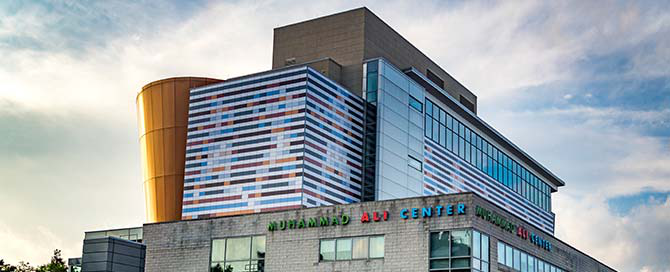Photo Credit: Daniel LaBarge (Louisville, KY)
If you were to look at the Laracon US speaker list, you would see that the majority of them had “Developer” or “Software Engineer” in their biographies. One even went as far as to include “Passionate” in their title. Based on the speakers, it was apparent that Laracon had an intended audience of developers. So why did SiteRocket Labs send me, an Operations Director, and why should other non-developer types also attend developer conferences?
As with any company, the SiteRocket Labs team members each have a job title (e.g.: Software Engineer) which describes their primary area of responsibility or focus (i.e.: engineering). These roles are flexible, however, in that we individually shape our responsibilities based on our strengths and unique interests. Which means that there is often overlap between roles. Our developers might refer to this as, “redundancy for failover.”
Beyond this, we believe in giving our team clear responsibilities in their work while also inviting them into conversations outside of their primary focus. This might mean that a developer offers suggestions for our management processes or that a designer might join in on a meeting where technical development strategy is being discussed. It is all about ongoing collaboration and cross-training.
For us, Laracon was more of a community conference brought together by a common passion for creating complex web applications with Laravel being just one of the many uniting tools we all use. Taylor Otwell and the Laracon organizers went beyond technical and developer specific topics and chose to focus on the larger community topics – problem solving and planning, interacting with co-workers, simplifying life (and code), and of course, working on and caring for your projects. All topics were relevant not just to Laravel developers, but to the industry and surrounding community of non-developer professionals as well. This inclusion of the non-developers working in and around Laravel was refreshing to us.
Our management and development teams work closely together on a daily basis. Being an active member of the wider community, we feel, is an important part of any manager’s role. In order to truly provide support and guidance to our team of developers, our management team needs to be fully embedded within the community and not simply a fringe element. The talks at Laracon were useful and interesting for developers, but they were equally important for management and non-developers to hear. Beyond the operations and project management, our managers need to have a multi-dimensional understanding of the developer perspective. Sharing a conference experience strengthens and encourages communication amongst the team. This in turn encourages our developers to speak more effectively as they efficiently identify and resolve potential issues.
I was sent to Laracon because I work closely with Laravel developers daily, and this allowed me to both represent our management team and to be part of the Laravel conversation. I was able to see first hand what inspires our developers and what it is to be part of the larger Laravel community.
Why Should You Care?
Attending conferences as a team provides you with an opportunity to refocus and and recharge together. This can be especially beneficial for a team with remote workers. It provides a vital connection opportunity that can improve your team relationships and level of communication. Attending a developer conference as a non-developer will give you an opportunity to reach out to your own peers as well as the peers that your development team is connecting with and learning from.
The fluidity of team roles, here at SiteRocket Labs, means that we view our team as a singular unit. Because of this we encourage each member to reach out and learn from each other – no matter the area of responsibility that they are filling. This carries over to conference attendance. Our hope is that these thoughts might inspire you to further connect with your teammates (developer and non-developer alike), realizing that together you are part of a larger community of problem solvers.
Looking for more Laracon recaps? You can find Daniel LaBarge’s Day One review and Travis Blasingame’s Day Two summary of Laracon on our blog →
